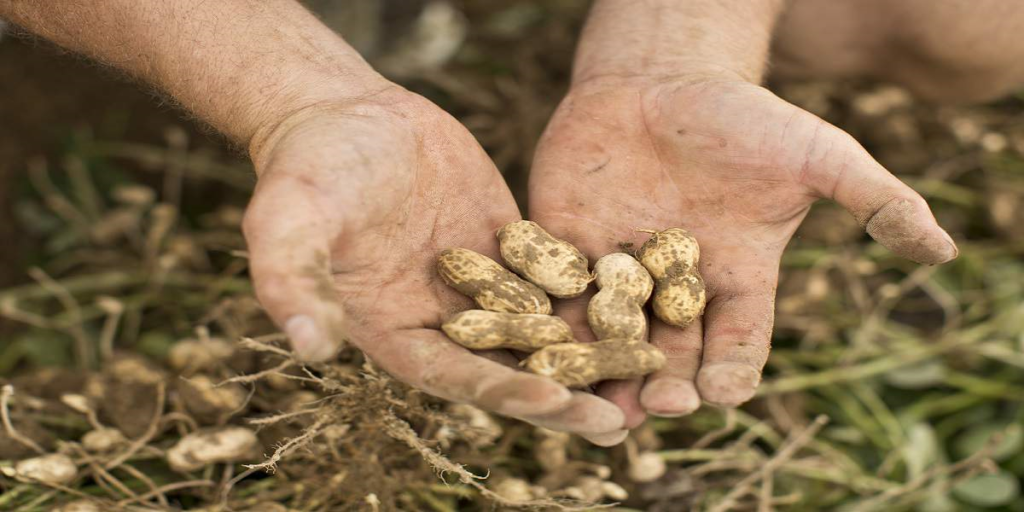When I married into the Benton family, I got an up close and personal look at life on the farm. Comer and Myrlene Benton were two of the warmest, inviting people one could ever meet on the earth. There was always room for an extra plate at the table for someone who might have dropped by. Grandma Benton was like Martha in scripture, but with a visible outward joy.
Papa Benton’s calloused hands told the story of what a hard worker he was until his sudden death at age seventy-nine. Papa loved the land. He thanked God for his land.
The main crop that Papa grew was peanuts. He had acres and acres of peanuts. Each year, as he planted his fields, he had no idea exactly how much he would reap when harvest time came. He did know that without planting seeds in faith, he would never see a harvest. He did not worry himself with the harvest, that part was up to God. He did his part by cultivating the soil, sowing the seed, fertilizing, and asking God to bless the seed every year. Planting seed takes a lot of work, a lot of faith, and a lot of patience.
Some years the crop was better than other years. It was exciting when the crop was overwhelmingly bountiful, but that wasn’t every year. Yet, Papa always planted because without the planting of seeds, there was no chance of reaping a harvest.
A sower went out to sow begins the familiar parable in Matthew thirteen. “Listen! A sower went out to sow. And as he sowed, some seeds fell on a path, and the birds came and ate them up. Other seeds fell on rocky ground, where they did not have much soil, and they sprang up quickly, since they had no depth of soil. But when the sun rose, they were scorched, and since they had no root, they withered away. Other seeds fell among thorns, and the thorns grew up and choked them. Other seeds fell on good soil and brought forth grain, some a hundredfold, some sixty, some thirty. If you have ears, hear!” -Matthew 13:3-9.
This story has several facets to it, but most often the emphasis is given to the hearer, and that is totally justifiable. But for just a moment today, let’s look at the sower.
The sower had a generous supply of seeds and sowed them bountifully. Some produced a zero harvest, and some produced a bountiful harvest. The sower did not know which seeds would spring forth with a grandiose harvest. Regardless of that fact, the sower sowed bountifully.
I find it interesting that as Jesus is sharing this parable, He himself is being a sower. The first couple of verses in Luke thirteen tell us that a large crowd was listening. Not everyone in the crowd was going to receive what Jesus was saying, but Jesus said it anyway. The sower continued to dole out the seeds even in places that did not look promising.
Do you ever tire of spreading seeds? Perhaps the size of the harvest makes the investment seem not worth the effort. Have you ever thought: I don’t want to pray one more prayer for this country. I don’t want to share God’s love one more time with that rebellious person. I don’t want to give one more dime to help with the homeless. I don’t want to teach this children’s class one more Sunday. I don’t want to be kind one more time to that rude person. I’m done! I see little or no results.
Friends, as the Bible says, ”Let us not grow weary in well doing.” That verse does not mean we will never get tired. It means let us not grow tired of doing that which is right in God’s sight.
A harvest awaits us, but we will never see it unless we generously sow seeds. That’s our part. God will take care of the harvest part. As Jesus said at the end of the parable, “You know what I’m saying?” (Well, maybe He said it a little differently.) Ultimately, the success of the seeds that we plant is not in our hands, but in the hands of the Holy Spirit. Our role is simply to plant the seeds, and to trust in God’s promise to help them grow. Harvest is coming.





